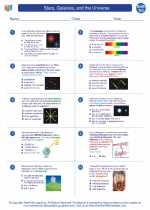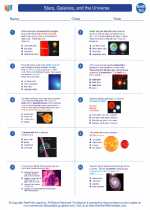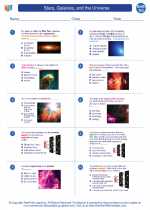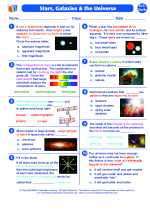Ecosystems
An ecosystem is a community of living organisms interacting with each other and with their non-living environment. It can be as small as a pond or as large as a rainforest. Ecosystems can be natural, like a forest, or human-made, like a farm. They can be freshwater, marine, terrestrial, or a combination of these. The components of an ecosystem include biotic (living) and abiotic (non-living) factors.
Components of an Ecosystem
- Biotic Factors: These include all living organisms in an ecosystem, such as plants, animals, fungi, and bacteria. They interact with each other and with the abiotic factors in the ecosystem.
- Abiotic Factors: These are the non-living components of an ecosystem, including air, water, soil, sunlight, temperature, and nutrients. These factors influence the distribution and abundance of biotic organisms in the ecosystem.
Energy Flow and Nutrient Cycling
In an ecosystem, energy flows through the food chain or food web. Producers, such as plants, capture energy from the sun and convert it into organic compounds through photosynthesis. Consumers, including herbivores, carnivores, and omnivores, obtain energy by consuming other organisms. Decomposers break down organic matter and release nutrients back into the ecosystem, completing the nutrient cycle.
Types of Ecosystems
Ecosystems can be classified into various types based on their characteristics:
- Terrestrial Ecosystems: These are land-based ecosystems, such as forests, grasslands, deserts, and tundra.
- Aquatic Ecosystems: These are water-based ecosystems, including freshwater (ponds, lakes, rivers) and marine (oceans, coral reefs) ecosystems.
- Artificial Ecosystems: Human-made ecosystems, such as agricultural fields, urban environments, and aquaculture farms.
Human Impact on Ecosystems
Human activities, such as deforestation, pollution, overfishing, and urbanization, have significant impacts on ecosystems. These activities can disrupt the balance of ecosystems, leading to loss of biodiversity, habitat destruction, and climate change.
Study Guide
To study ecosystems, consider the following key points:
- Understand the interactions between biotic and abiotic factors in an ecosystem.
- Learn about the energy flow and nutrient cycling in different types of ecosystems.
- Explore the characteristics and adaptations of organisms in specific ecosystems.
- Examine the human impact on ecosystems and the importance of conservation efforts.
By understanding ecosystems, we can appreciate the delicate balance of nature and work towards preserving and restoring these essential systems for the well-being of all living organisms.
[Ecosystems] Related Worksheets and Study Guides:
.◂Earth Science Worksheets and Study Guides High School. Stars, Galaxies, and the Universe

 Worksheet/Answer key
Worksheet/Answer key
 Worksheet/Answer key
Worksheet/Answer key
 Worksheet/Answer key
Worksheet/Answer key
